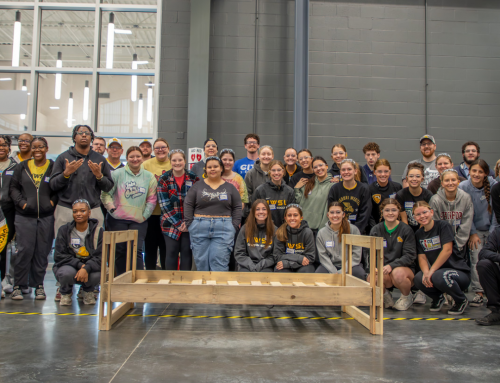Contributed by Patty Lashbrook
My name is Patty. I am a non-traditional freshman with a very unique perspective. I am just wrapping up my first semester of college, but I am quite a bit older than most of my classmates. What makes this perspective unique? I am both a college freshman and a parent of young adults. I talk to students every day as a colleague, but I hear the things they aren’t saying because I’m a parent.
Your student may have just been home a few short weeks ago, but the upcoming semester break is longer and can be more final if they have connected with students who are graduating this semester. While your student may be sad about leaving their new college friends, they may also feel anxious or awkward about returning home to friendships from high school or earlier. People change significantly as they enter adulthood, and it is normal to outgrow some friendships and relationships. Studies show that friendships established in college are more likely to last for decades or longer than childhood friendships. However, those who may have been inseparable in high school may not have much in common anymore, and that can be a source of both pain and confusion. It can be hard to process the emotions that come from dissolved relationships, especially if your student has never processed this before.
Your student has just finished their first semester of college. There will be a lot of emotions connected to grades, responsibility and independence. Your student may feel relief that the semester is over, regardless of their grades. They may also be anxious about the upcoming semester, whether they want to do better or continue in their success. As a parent, you do not have access to your student’s college grades unless they have expressly given you that access. If you’re curious, ask, but don’t be hurt if your student won’t tell you or doesn’t want to talk about it. Chances are, if they did well, they’ll tell you. If they don’t tell you, they probably didn’t do well and they may be disappointed or embarrassed to admit that.
In addition, if your student had minimal responsibility before going off to college, the expectation from professors can be confusing. While independence is, of course, liberating, it can also be overwhelming. Your student may be uneasy about rules and boundaries when returning to their childhood home after being independent for a few months, but there is also a chance that the rules and boundaries might be comforting.
What can you do?
We parents tend to want to fix what’s wrong, but that may not be what your student needs right now. As children enter adulthood, the role of parenting doesn’t end, it evolves. So, what can you do to help your student process all of these feelings? The most important thing to do is to keep communication open. Some of the questions that might start these conversations:
- How can I help you work through this?
- What can I do to help you?
- Do you want my help or do you just want me to listen?
- What have you experienced that you weren’t prepared for?
- What are you most proud of from this semester?
- What are you most looking forward to next semester?
It is also important to encourage your student and express your confidence in their adultness. Approach these conversations and challenges more as a peer than as a parent unless they expressly request your parental contribution.





